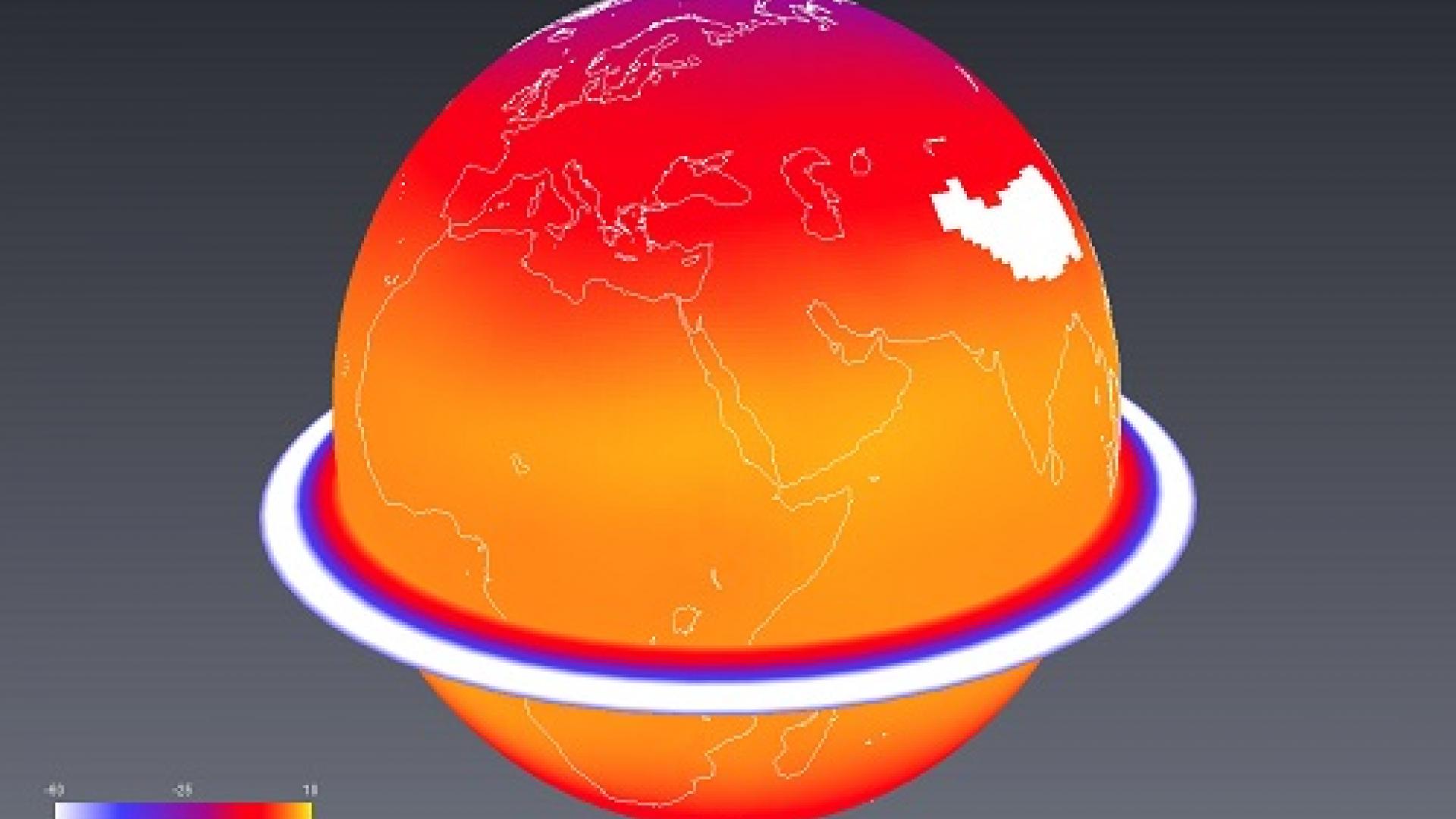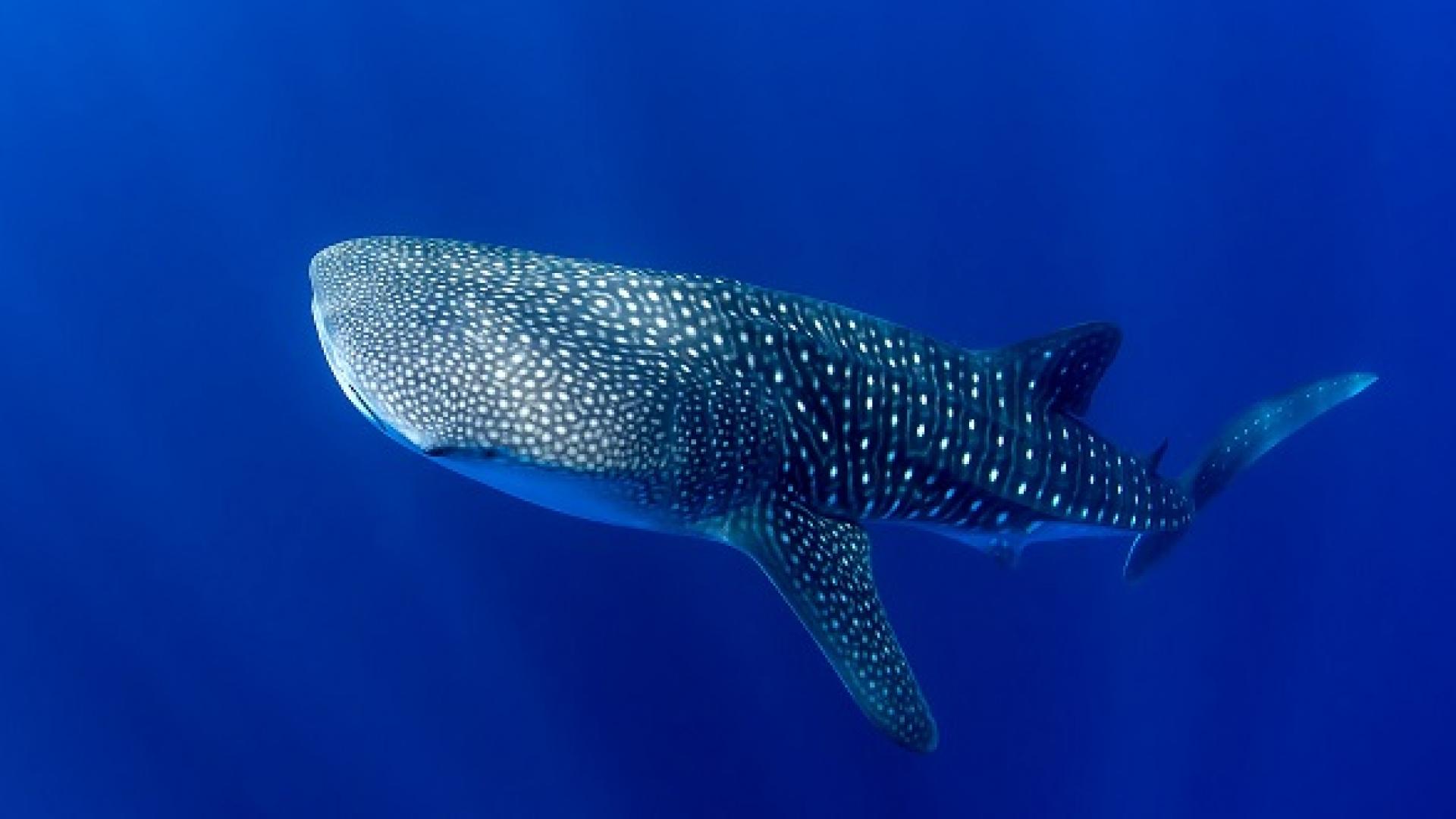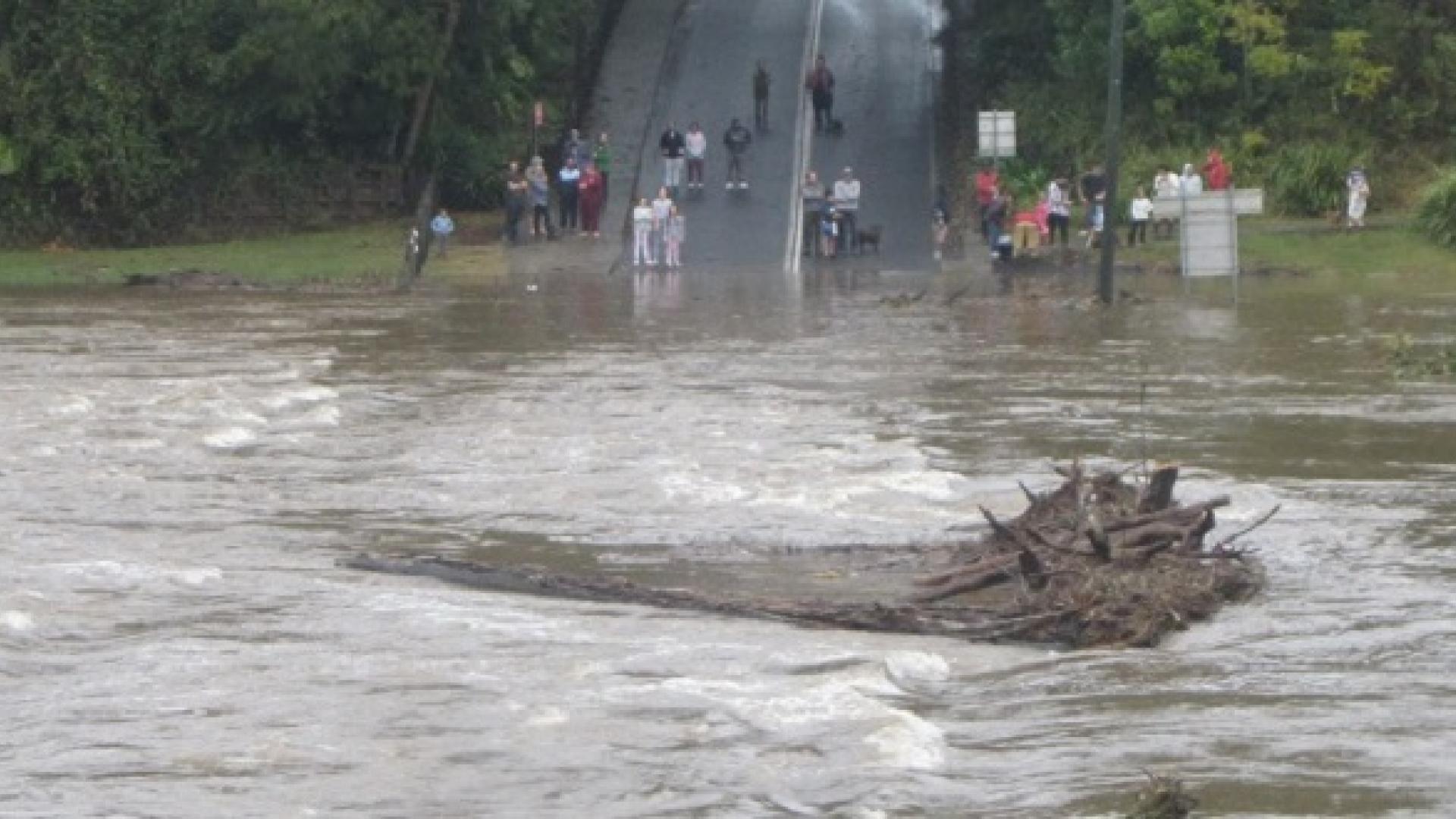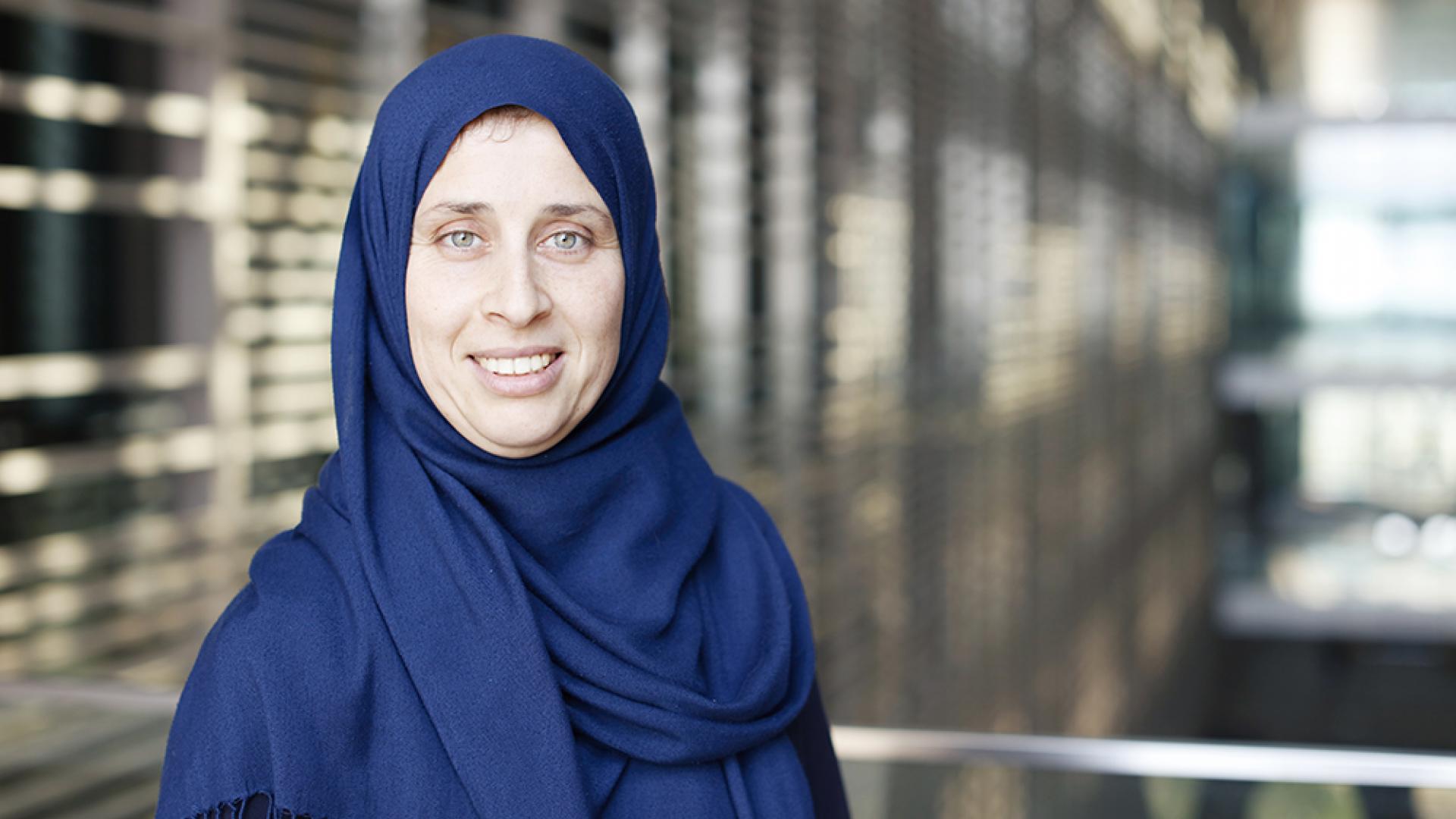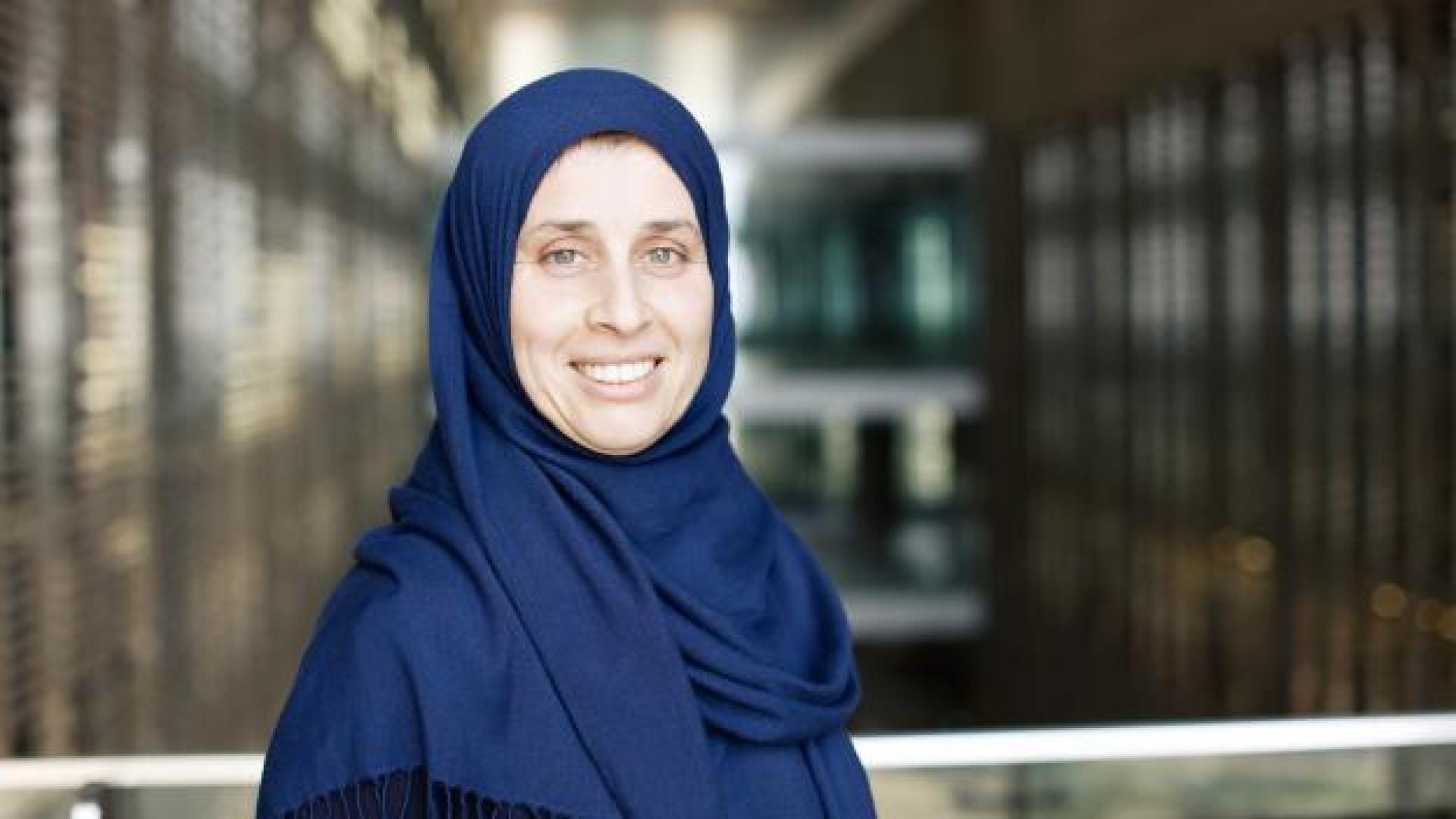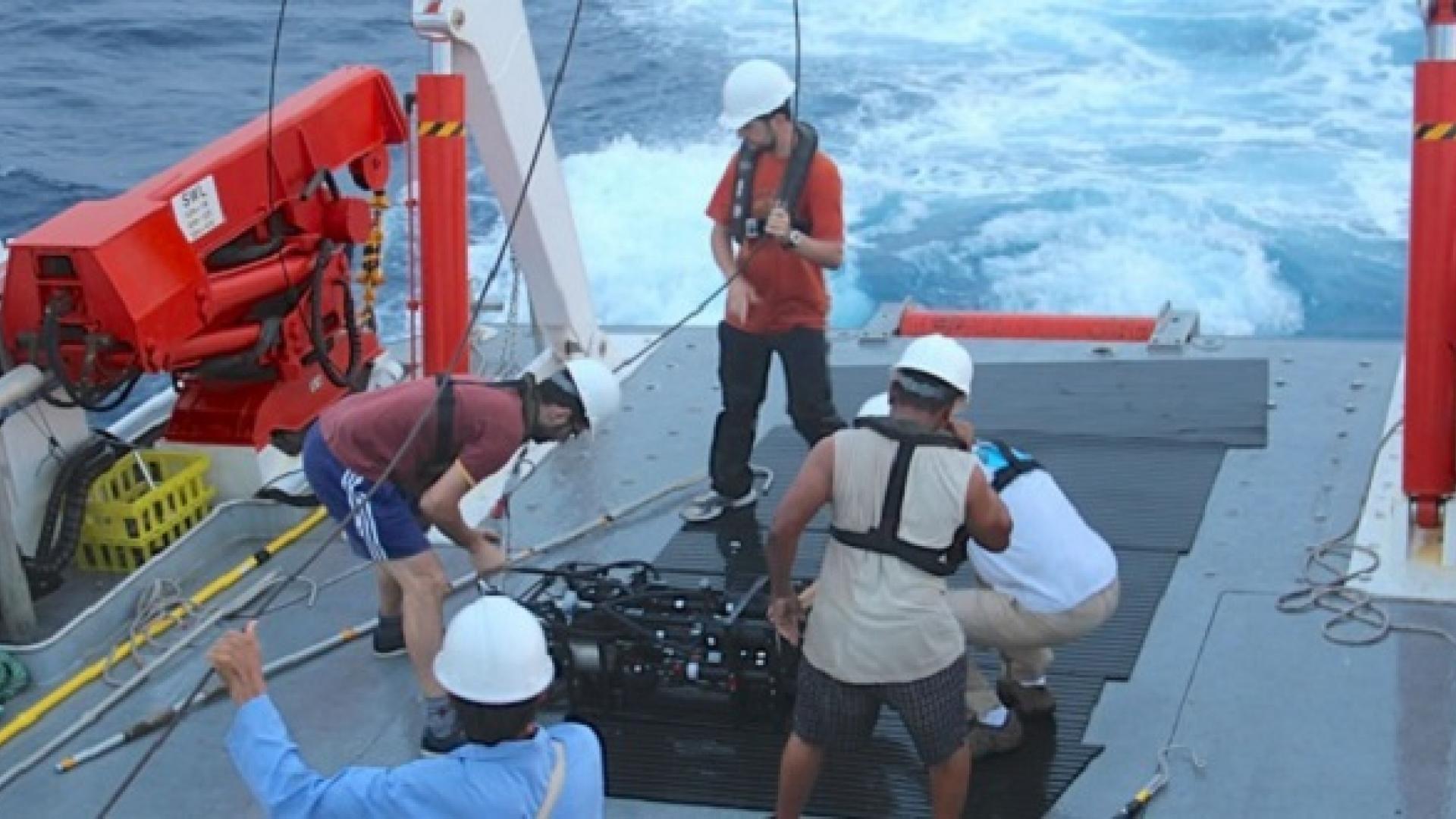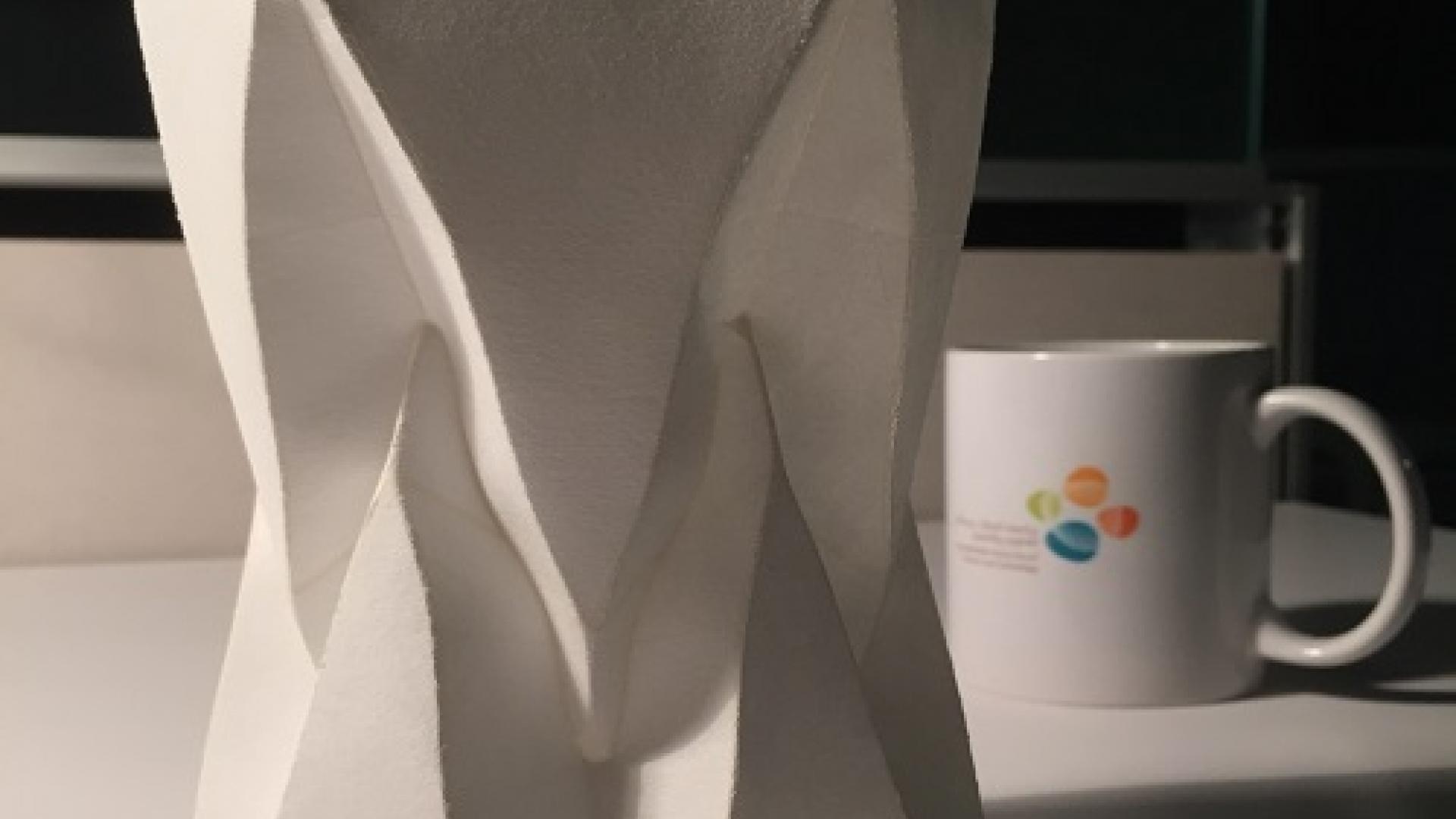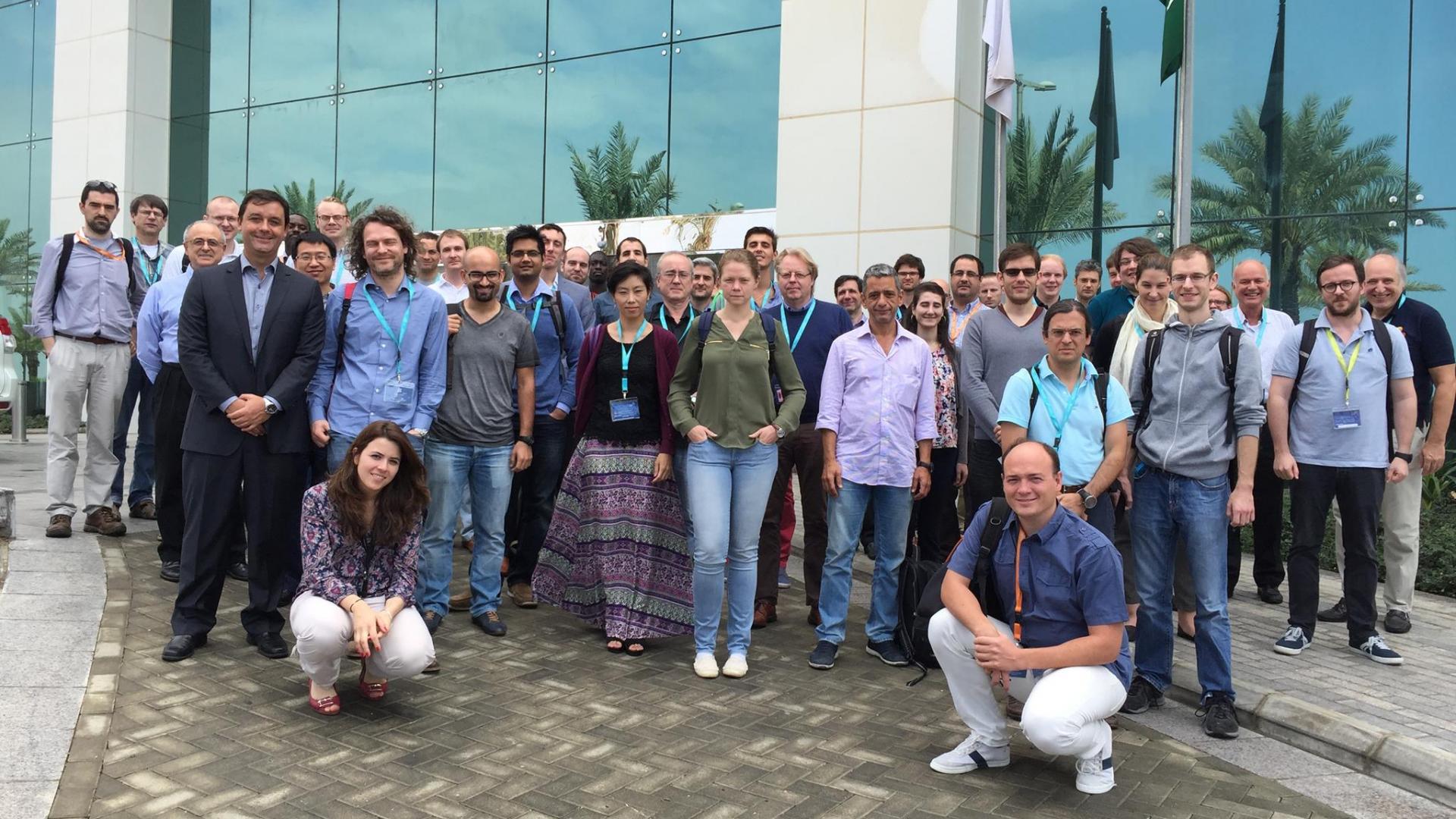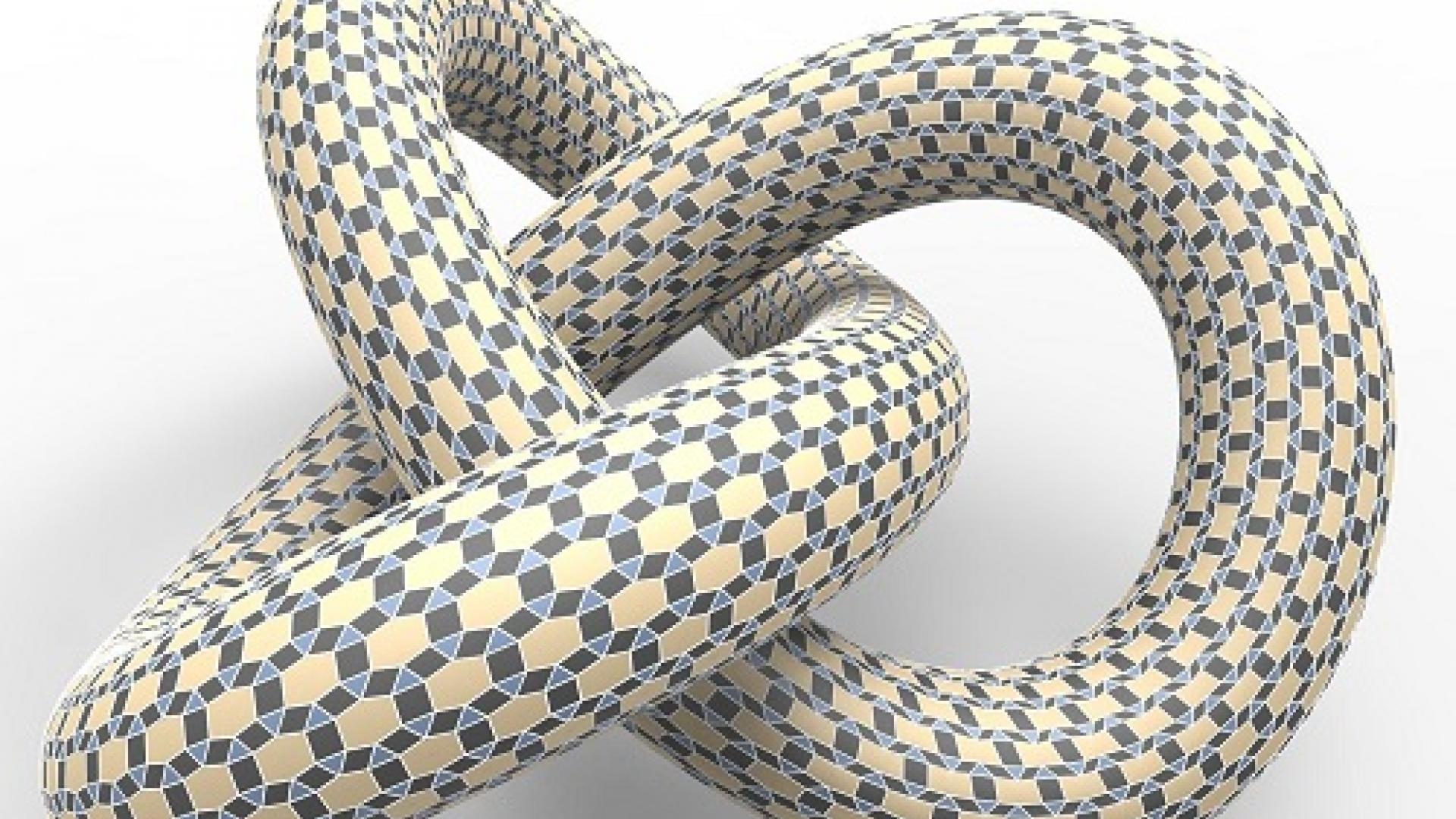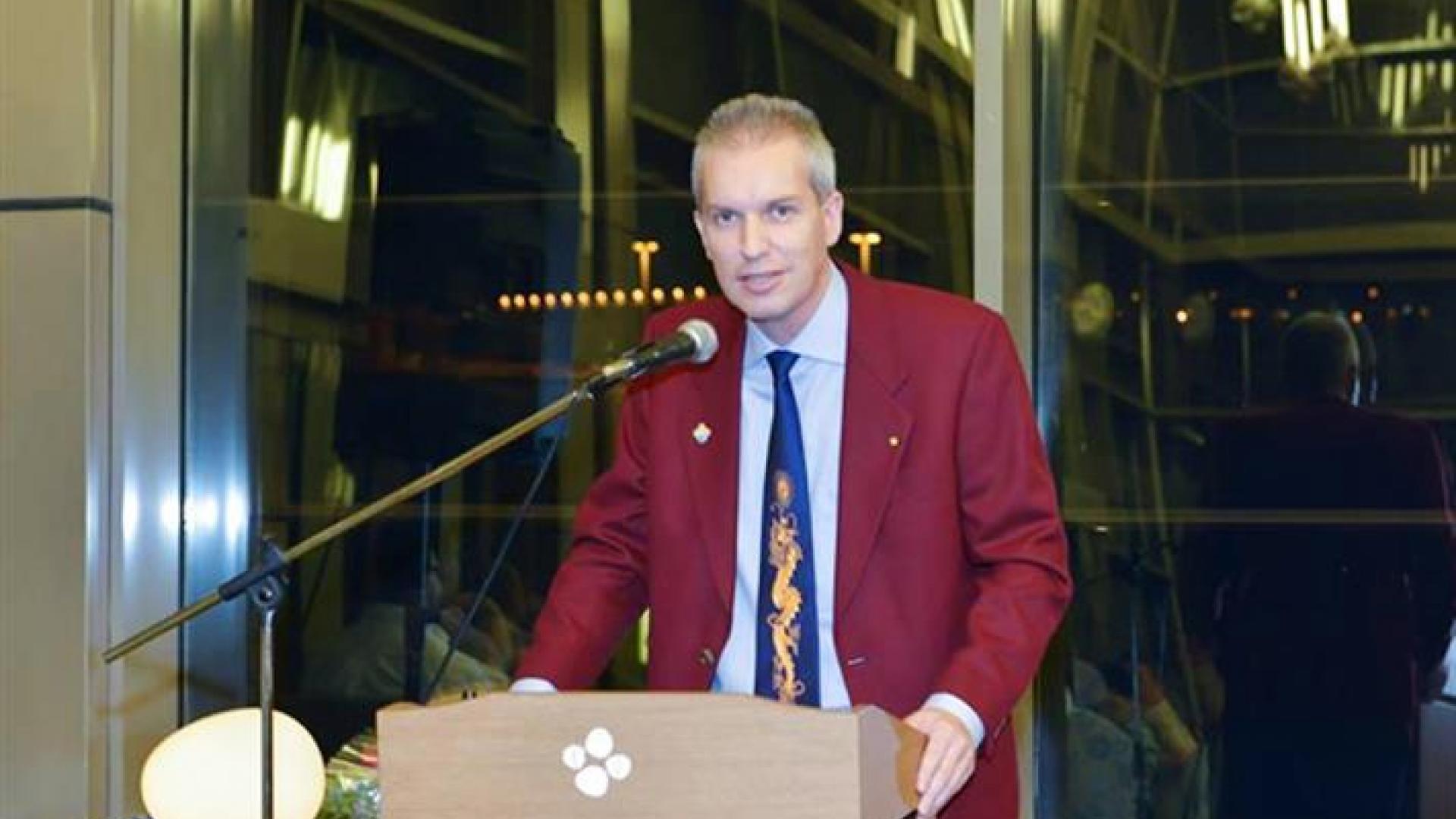A statistics-based data compression scheme cuts data storage requirements for large-scale climate simulations by as much as 98 percent.
A population study of whale sharks in the Red Sea reveals unique group dynamics.
An efficient simulation scheme that hones in on the rarest elements in a dataset can help predict capacity exceedances in wireless networks.
By tapping into the power of extreme value theory, an international team of researchers including Raphaël Huser from the University's Computer, Electrical and Mathematical Science and Engineering Division has developed a statistical model that overcomes the shortcomings of previous schemes to provide a reliable basis for climate research and the prediction of
Improved random modeling allows scientists to generate realistic patterns of high-frequency rainfall.
Consistent around the world's ocean, the phases of the moon affect the upward migration of the world’s most abundant type of fish for feeding.
An accurate mathematical model is proposed to describe an emerging desalination technology called direct contact membrane distillation system. The mathematical model is important for designing efficient control and monitoring strategies, a crucial step to facilitate the commercialization of this technology.
A new algorithm is proposed to estimate the average velocity, dispersion coefficient, and differentiation order of a space-fractional advection-dispersion equation used for modeling contaminant transport in porous media. This allows for the characterization of the medium and the determination of the contaminant source. The algorithm is efficient, robust and fast.
Studies conducted at the Saudi Aramco-KAUST Marine Environmental Research Center provide new insights into the physical and biological aspects of the Red Sea.
A novel approach to calibrate the hemodynamic model using functional Magnetic Resonance Imaging (fMRI) measurements.
Next-generation mobile networks can use cloud computing algorithms to manage the increasingly high data demands of users.
An interactive computational tool opens new possibilities for "developable" surfaces.
Conference on Advances in Uncertainty Quantification Methods, Algorithm and Applications (#UQAW2016)
The 4th consecutive year that KAUST is holding the UQAW annual event dedicated to reporting on the state-of-the-art and latest advances in the methods used to quantify the calculation uncertainties. The aim of the discussion forum in exchanging information on innovative algorithm design as well as their practical applications and performances in experimental settings.
Planar designs are used to model complex curved surfaces, with applications from architecture to 3D prints.
Prof. Marc Genton has been appointed as the next Editor-in-Chief of Stat, the ISI online journal for rapid dissemination of statistics research. Prof. Genton will begin his term in January 1, 2015 until December 31, 2017.
